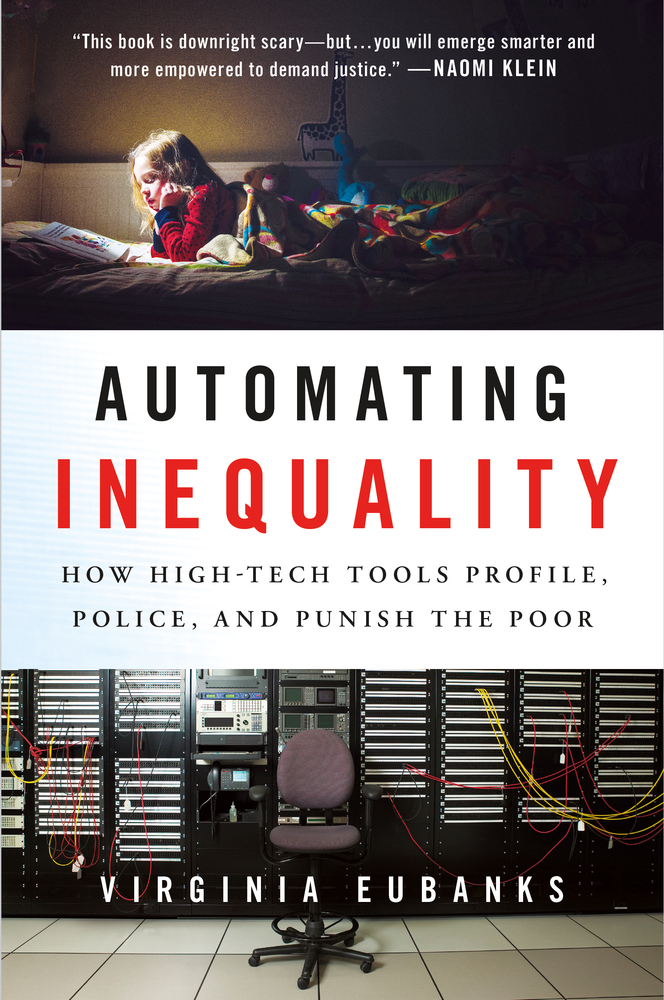 When Virginia Eubanks starts off Automating Inequality by describing 19th century poorhouses… I was surprised to find my own hometown included! With automated social welfare systems, she argues, we’ve created a ‘digital’ poorhouse that tracks and controls citizens, assessing their need and value before providing them with assistance.
When Virginia Eubanks starts off Automating Inequality by describing 19th century poorhouses… I was surprised to find my own hometown included! With automated social welfare systems, she argues, we’ve created a ‘digital’ poorhouse that tracks and controls citizens, assessing their need and value before providing them with assistance.
The book is well-constructed, built around interviews with people in three regions: Indiana residents who fight automated denials of food and healthcare assistance, homeless people sorted by algorithm to either have a home or remain on the street in LA, and families in Pennsylvania who are rated by automated systems as to whether their children are in danger and should be either helped or taken away. (She also interviews the administrators and case managers who are obliged to abide by the decisions these systems make, rather than by their professional judgment of a person).
On the ground, people are frustrated by these ‘efficient’ systems, with one Indian citizen reflecting:
“‘The system doesn’t seem to be set up to help people. It seems to be set up to play gotcha… In our legal system it is better that ten guilty men go free than one innocent man go to jail’… [but here] it is better for ten eligible applicants to be denied public benefits than for one ineligible person to receive them.”
Algorithms only work as well as the questions we ask when we make them, Eubanks says. Once upon a time, we were “asking difficult questions: What is our obligation to each other in conditions of inequality? How do we reward caregiving? How do we face economic changes wrought by automation and computerization?,” yet we slid into asking how to make a better people-sorter to deploy existing benefits to the worthy.
Eubanks urges us to ask the broader questions again, as:
“The very existence of a social safety net is premised on an agreement to share the social costs of uncertainty… states distribute the consequences of bad luck more equally across society’s members. They acknowledge that we, as a society, share collective responsibility for creating a system that produces winners and losers, inequity and opportunity.”
